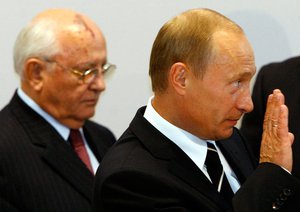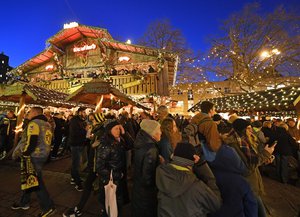- published: 11 Sep 2013
- views: 132349
-
remove the playlistKuomintang
- remove the playlistKuomintang
- published: 07 Jun 2013
- views: 3940
- published: 31 Aug 2015
- views: 1811
- published: 30 Jan 2015
- views: 725
- published: 20 Nov 2015
- views: 18106
- published: 31 Oct 2016
- views: 211
- published: 16 Jan 2016
- views: 1928
- published: 01 Apr 2012
- views: 30787

Kuomintang
The Kuomintang of China (/ˌkwoʊmɪnˈtɑːŋ/ or /-ˈtæŋ/;KMT, or Guomindang (/ˌɡwoʊmɪnˈdɑːŋ/) and GMD by its Pinyin transliteration, also translated as the Chinese Nationalist Party) is the current ruling political party in Republic of China. Following losses in the presidential and legislative elections of 2016, the party will become the official opposition.
The predecessor of the KMT, the Revolutionary Alliance, was one of the major advocates of the overthrow of the Qing Dynasty and the establishment of a republic. The KMT was founded by Song Jiaoren and Sun Yat-sen shortly after the Xinhai Revolution of 1911. Sun was the provisional president but he did not have military power and ceded the first presidency to the military leader Yuan Shikai. After Yuan's death, China was divided by warlords, while the KMT was able to control only part of the south. Later led by Chiang Kai-shek, the KMT formed the National Revolutionary Army and succeeded in its Northern Expedition to unify much of China in 1928. It was the ruling party in mainland China from 1928 until its retreat to Taiwan in 1949 after being defeated by the Communist Party of China (CPC) during the Chinese Civil War. In Taiwan, the KMT continued as the single ruling party until the reforms in the late 1970s through the 1990s loosened its grip on power. Since 1987, the Republic of China is no longer a single-party state; however, the KMT remains one of the main political parties, controlling the Legislative Yuan (Parliament) and most of the councils.
This article is licensed under the Creative Commons Attribution-ShareAlike 3.0 Unported License, which means that you can copy and modify it as long as the entire work (including additions) remains under this license.
Civil war (disambiguation)
A civil war is an armed conflict within a nation.
The term "The Civil War" redirects here. See List of civil wars for a longer list of specific conflicts.
For the 17th century Civil War in England, see English Civil War.
For the 19th century Civil War in the United States, see American Civil War.
Civil war may also refer to:
Film
Games
Music
Sports
This article is licensed under the Creative Commons Attribution-ShareAlike 3.0 Unported License, which means that you can copy and modify it as long as the entire work (including additions) remains under this license.

Khan Academy
Khan Academy is a non-profit educational organization created in 2006 by educator Salman Khan with the aim of providing a free, world-class education for anyone, anywhere. The organization produces short lectures in the form of YouTube videos. In addition to micro lectures, the organization's website features practice exercises and tools for educators. All resources are available for free to anyone around the world. The main language of the website is English, but the content is also available in other languages.
History
The founder of the organization, Salman Khan, was born in New Orleans, Louisiana, United States to immigrant parents from Bangladesh and India. After earning three degrees from the Massachusetts Institute of Technology (a BS in mathematics, a BS in electrical engineering and computer science, and an MEng in electrical engineering and computer science), he pursued an MBA from Harvard Business School.
In late 2004, Khan began tutoring his cousin Nadia who needed help with math using Yahoo!'s Doodle notepad.When other relatives and friends sought similar help, he decided that it would be more practical to distribute the tutorials on YouTube. The videos' popularity and the testimonials of appreciative students prompted Khan to quit his job in finance as a hedge fund analyst at Connective Capital Management in 2009, and focus on the tutorials (then released under the moniker "Khan Academy") full-time.
This article is licensed under the Creative Commons Attribution-ShareAlike 3.0 Unported License, which means that you can copy and modify it as long as the entire work (including additions) remains under this license.

Taiwan
Coordinates: 23°30′N 121°00′E / 23.500°N 121.000°E / 23.500; 121.000
Taiwan (![]() i/ˌtaɪˈwɑːn/; Chinese: 臺灣 or 台灣; see below), officially the Republic of China (ROC; Chinese: 中華民國; pinyin: Zhōnghuá Mínguó), is a sovereign state in East Asia. The Republic of China, originally based in mainland China, now governs the island of Taiwan, which constitutes more than 99% of its territory, as well as Penghu, Kinmen, Matsu, and other minor islands, following its loss of the mainland China territory in 1949 in the Chinese Civil War. This remaining area is also constitutionally called the "Free area of the Republic of China" which is not ruled by the Communist Party of China in Beijing.
i/ˌtaɪˈwɑːn/; Chinese: 臺灣 or 台灣; see below), officially the Republic of China (ROC; Chinese: 中華民國; pinyin: Zhōnghuá Mínguó), is a sovereign state in East Asia. The Republic of China, originally based in mainland China, now governs the island of Taiwan, which constitutes more than 99% of its territory, as well as Penghu, Kinmen, Matsu, and other minor islands, following its loss of the mainland China territory in 1949 in the Chinese Civil War. This remaining area is also constitutionally called the "Free area of the Republic of China" which is not ruled by the Communist Party of China in Beijing.
Neighboring states include the People's Republic of China (PRC) to the west (mainland China), Japan to the east and northeast, and the Philippines to the south. Taiwan is one of the most densely populated countries in the world with a population density of 649 people per km2 in October 2015.Taipei is the seat of the central government, and together with the surrounding cities of New Taipei and Keelung forms the largest metropolitan area on the island.
This article is licensed under the Creative Commons Attribution-ShareAlike 3.0 Unported License, which means that you can copy and modify it as long as the entire work (including additions) remains under this license.

China
China, officially the People's Republic of China (PRC), is a sovereign state in East Asia. It is the world's most populous country, with a population of over 1.35 billion. The PRC is a one-party state governed by the Communist Party, with its seat of government in the capital city of Beijing. It exercises jurisdiction over 22 provinces; five autonomous regions; four direct-controlled municipalities (Beijing, Tianjin, Shanghai and Chongqing); two mostly self-governing special administrative regions (Hong Kong and Macau); and claims sovereignty over Taiwan.
Covering approximately 9.6 million square kilometers, China is the world's second-largest country by land area, and either the third or fourth-largest by total area, depending on the method of measurement. China's landscape is vast and diverse, ranging from forest steppes and the Gobi and Taklamakan deserts in the arid north to subtropical forests in the wetter south. The Himalaya, Karakoram, Pamir and Tian Shan mountain ranges separate China from South and Central Asia. The Yangtze and Yellow Rivers, the third- and sixth-longest in the world, run from the Tibetan Plateau to the densely populated eastern seaboard. China's coastline along the Pacific Ocean is 14,500 kilometres (9,000 mi) long, and is bounded by the Bohai, Yellow, East and South China Seas.
This article is licensed under the Creative Commons Attribution-ShareAlike 3.0 Unported License, which means that you can copy and modify it as long as the entire work (including additions) remains under this license.
- Loading...

-
 11:07
11:07Overview of Chinese history 1911 - 1949 | The 20th century | World history | Khan Academy
Overview of Chinese history 1911 - 1949 | The 20th century | World history | Khan AcademyOverview of Chinese history 1911 - 1949 | The 20th century | World history | Khan Academy
Created by Sal Khan. Watch the next lesson: https://www.khanacademy.org/humanities/world-history/euro-hist/wo/v/beginning-of-world-war-ii?utm_source=YT&utm;_medium=Desc&utm;_campaign=worldhistory Missed the previous lesson? https://www.khanacademy.org/humanities/world-history/euro-hist/mussolini-fascism/v/mussolini-aligns-with-hitler?utm_source=YT&utm;_medium=Desc&utm;_campaign=worldhistory World history on Khan Academy: From the earliest civilizations to the modern world, geography, religion, trade, and politics have bound peoples and nations together — and torn them apart. Take a journey through time and space and discover the fascinating history behind the complex world we inhabit today. About Khan Academy: Khan Academy offers practice exercises, instructional videos, and a personalized learning dashboard that empower learners to study at their own pace in and outside of the classroom. We tackle math, science, computer programming, history, art history, economics, and more. Our math missions guide learners from kindergarten to calculus using state-of-the-art, adaptive technology that identifies strengths and learning gaps. We've also partnered with institutions like NASA, The Museum of Modern Art, The California Academy of Sciences, and MIT to offer specialized content. For free. For everyone. Forever. #YouCanLearnAnything Subscribe to Khan Academy’s World History channel: https://www.youtube.com/channel/UC6KRvvmvkCchFMo2EJ-3Arg?sub_confirmation=1 Subscribe to Khan Academy: https://www.youtube.com/subscription_center?add_user=khanacademy -
 2:10
2:10Kuomintang Victory
Kuomintang Victory -
 2:38
2:38China rehabilitates Kuomintang veterans | FT World
China rehabilitates Kuomintang veterans | FT WorldChina rehabilitates Kuomintang veterans | FT World
As China prepares to celebrate the 70th anniversary of the end of the second world war with a military parade aimed at glorifying the Communist party, the FT's Lucy Hornby travels to Yunnan to meet Kuomintang veterans who have faced decades of discrimination. ► Subscribe to the Financial Times on YouTube: http://bit.ly/FTimeSubs For more video content from the Financial Times, visit http://www.FT.com/video Twitter https://twitter.com/ftvideo Facebook https://www.facebook.com/financialtimes -
 9:40
9:40Kuomintang Ideology
Kuomintang IdeologyKuomintang Ideology
-
 9:28
9:28Hong Kong Kuomintang China Nationalists at Rennie's Mill
Hong Kong Kuomintang China Nationalists at Rennie's MillHong Kong Kuomintang China Nationalists at Rennie's Mill
News feature about how the enclave of KMT supporters at Rennie's Mill celebrate its National Day. Report broadcast in 1995. Reporter/Producer: Andrew Patterson -
 14:18
14:18China Civil War 国共内战
China Civil War 国共内战China Civil War 国共内战
Modern history: The Chinese Civil War[b] (simplified Chinese: 国共内战; traditional Chinese: 國共內戰; pinyin: Guó-Gòng Nèizhàn) was a civil war in China fought between forces loyal to the Kuomintang (KMT)-led government of the Republic of China, and forces loyal to the Communist Party of China (CPC).[8] The war began in August 1927, with Chiang Kai-Shek's Northern Expedition, and essentially ended when major active battles ceased in 1950.[9] The conflict eventually resulted in two de facto states, the Republic of China (ROC) in Taiwan and the People's Republic of China (PRC) in mainland China, both officially claiming to be the legitimate government of China. The war represented an ideological split between the Communist CPC and the KMT's brand of Nationalism. It continued intermittently until late 1937, when the two parties came together to form the Second United Front to counter a Japanese invasion and prevent the country from adding to an earlier invasion into Manchuria in 1931. China's full-scale civil war resumed in 1946, a year after the end of hostilities with Japan. Four years later came the cessation of major military hostilities, with the newly founded People's Republic of China controlling mainland China (including Hainan) and the Republic of China's jurisdiction being restricted to Taiwan, Penghu, Quemoy, Matsu and several outlying islands. Historian Odd Arne Westad says the Communists won the Civil War because they made fewer military mistakes than Chiang Kai-shek and also because in his search for a powerful centralized government, Chiang antagonized too many interest groups in China. Furthermore, his party was weakened in the war against the Japanese. Meanwhile, the Communists targeted different groups, such as peasants, and brought them to its corner.[10] Chiang wrote in his diary in June 1948 that the KMT had failed not because of external enemies but because of rot from within.[11] Strong initial support from the US diminished with the failure of the Marshall Mission, and then stopped completely mainly because of KMT corruption [12] (such as the notorious Yangtze Development Corporation [13] controlled by H.H. Kung and T.V. Soong's family) [14] and KMT's military setback in Northeast China. Communist land reform policy, which promised poor peasants farmland from their landlords, ensured PLA popular support. After the surrender of Japan at the end of World War II, Soviet forces turned over their captured Japanese weapons to the CPC and allowed it to take control of territory in Manchuria; many believe the Soviet Union was allowed to do so by the US and the United Kingdom because of their desire to influence the outcome of the Chinese Civil War (especially in the decisive battles in Northeast China) at the expense of the Republic of China government by the result of the Yalta Conference until the start of the Cold War across the Taiwan Strait (see United Nations General Assembly Resolution 505). In the Chinese Civil War after 1945, the economy in the ROC areas collapsed because of hyperinflation and the failure of price controls by the ROC government and financial reforms; the Gold Yuan devaluated sharply in late 1948 [15] and resulted in the ROC government losing the support of the cities' middle classes; in the meantime, the Communists continued their relentless land reform (land redistribution) programs to win the support of the population in the countryside. To this day no armistice or peace treaty has ever been signed, and there is debate about whether the Civil War has legally ended.[16] Cross-Strait relations have been hindered by military threats and political and economic pressure, particularly over Taiwan's political status, with both governments officially adhering to a "One-China policy." The PRC still actively claims Taiwan as part of its territory and continues to threaten the ROC with a military invasion if the ROC officially declares independence by changing its name to and gaining international recognition as the Republic of Taiwan. The ROC mutually claims mainland China, and they both continue the fight over diplomatic recognition. Today the war as such occurs on the political and economic fronts in the form of cross-Strait relations; however, the two separate de facto states have close economic ties.[17] -
 1:00
1:00Kuomintang Leader Hung-Hsiu-chu Arrives in Nanjing
Kuomintang Leader Hung-Hsiu-chu Arrives in NanjingKuomintang Leader Hung-Hsiu-chu Arrives in Nanjing
Kuomintang leader Hung Hsiu-chu and her delegation arrived in Nanjing Sunday evening on a visit to the Chinese mainland. It is the first time for Hung to visit the mainland as the head of the Kuomintang along with her delegation. Before departing for Nanjing, Hung stressed the visit is for peace, and people-to-people exchanges between Taiwan and the Chinese mainland should continue. Upon arrival, Hung said in response to a reporter's question, "I feel very good, and the flight was very smooth; (Everything) is fine." Hung will visit Dr. Sun Yat-sen's Mausoleum on Monday morning to pay tribute to this important figure in the Chinese history. Then Hung will fly to Beijing for the Cross-Strait Peace Forum to be held on Nov. 2 and Nov. 3. Hung will also meet Chinese President Xi Jinping in Beijing during her stay in the Chinese mainland. The visit of Hung aims to continue exchanges between the two parties. The Taiwan Affairs Office of China's State Council said earlier that this visit is important for Taiwan and the Chinese mainland to consolidate common political ground, and to safeguard peaceful development of cross-Strait relations and stability of the region. More on: http://www.cctvplus.com/news/20161030/8035508.shtml#!language=1 Subscribe us on Youtube: https://www.youtube.com/c/CCTVPlus CCTV+ official website: http://www.cctvplus.com/ LinkedIn: https://www.linkedin.com/company/cctv-news-content Facebook: https://www.facebook.com/NewsContent.CCTVPLUS Twitter: https://twitter.com/CCTV_Plus -
 3:51
3:51KuoMinTang
KuoMinTangKuoMinTang
-
 1:48
1:48Taiwan votes counting, Kuomintang concedes defeat
Taiwan votes counting, Kuomintang concedes defeatTaiwan votes counting, Kuomintang concedes defeat
Taiwan's ruling Kuomintang party leader Eric Chu conceded defeat in the island's elections on Saturday, with opposition leader Tsai Ing-wen set to become the island's first female leader. -
 3:14
3:14Alternate History Video: A Nationalist China
Alternate History Video: A Nationalist ChinaAlternate History Video: A Nationalist China
What if Chiang Kai-shek was endorsed by his people, and the Communists were hated? What if the West handed over more support to the Kuomintang? NOTE: VIDEO NOT MEANT TO OFFEND ANYONE
-

Overview of Chinese history 1911 - 1949 | The 20th century | World history | Khan Academy
Created by Sal Khan. Watch the next lesson: https://www.khanacademy.org/humanities/world-history/euro-hist/wo/v/beginning-of-world-war-ii?utm_source=YT&utm;_medium=Desc&utm;_campaign=worldhistory Missed the previous lesson? https://www.khanacademy.org/humanities/world-history/euro-hist/mussolini-fascism/v/mussolini-aligns-with-hitler?utm_source=YT&utm;_medium=Desc&utm;_campaign=worldhistory World history on Khan Academy: From the earliest civilizations to the modern world, geography, religion, trade, and politics have bound peoples and nations together — and torn them apart. Take a journey through time and space and discover the fascinating history behind the complex world we inhabit today. About Khan Academy: Khan Academy offers practice exercises, instructional videos, and a personalized...
published: 11 Sep 2013 -

Kuomintang Victory
A one part video. What if the Kuomintang won the Chinese Civil War?
published: 07 Jun 2013 -

China rehabilitates Kuomintang veterans | FT World
As China prepares to celebrate the 70th anniversary of the end of the second world war with a military parade aimed at glorifying the Communist party, the FT's Lucy Hornby travels to Yunnan to meet Kuomintang veterans who have faced decades of discrimination. ► Subscribe to the Financial Times on YouTube: http://bit.ly/FTimeSubs For more video content from the Financial Times, visit http://www.FT.com/video Twitter https://twitter.com/ftvideo Facebook https://www.facebook.com/financialtimes
published: 31 Aug 2015 -

Kuomintang Ideology
published: 15 Dec 2009 -

Hong Kong Kuomintang China Nationalists at Rennie's Mill
News feature about how the enclave of KMT supporters at Rennie's Mill celebrate its National Day. Report broadcast in 1995. Reporter/Producer: Andrew Patterson
published: 30 Jan 2015 -

China Civil War 国共内战
Modern history: The Chinese Civil War[b] (simplified Chinese: 国共内战; traditional Chinese: 國共內戰; pinyin: Guó-Gòng Nèizhàn) was a civil war in China fought between forces loyal to the Kuomintang (KMT)-led government of the Republic of China, and forces loyal to the Communist Party of China (CPC).[8] The war began in August 1927, with Chiang Kai-Shek's Northern Expedition, and essentially ended when major active battles ceased in 1950.[9] The conflict eventually resulted in two de facto states, the Republic of China (ROC) in Taiwan and the People's Republic of China (PRC) in mainland China, both officially claiming to be the legitimate government of China. The war represented an ideological split between the Communist CPC and the KMT's brand of Nationalism. It continued intermittently until l...
published: 20 Nov 2015 -

Kuomintang Leader Hung-Hsiu-chu Arrives in Nanjing
Kuomintang leader Hung Hsiu-chu and her delegation arrived in Nanjing Sunday evening on a visit to the Chinese mainland. It is the first time for Hung to visit the mainland as the head of the Kuomintang along with her delegation. Before departing for Nanjing, Hung stressed the visit is for peace, and people-to-people exchanges between Taiwan and the Chinese mainland should continue. Upon arrival, Hung said in response to a reporter's question, "I feel very good, and the flight was very smooth; (Everything) is fine." Hung will visit Dr. Sun Yat-sen's Mausoleum on Monday morning to pay tribute to this important figure in the Chinese history. Then Hung will fly to Beijing for the Cross-Strait Peace Forum to be held on Nov. 2 and Nov. 3. Hung will also meet Chinese President Xi Jinping i...
published: 31 Oct 2016 -

KuoMinTang
published: 09 Jun 2011 -

Taiwan votes counting, Kuomintang concedes defeat
Taiwan's ruling Kuomintang party leader Eric Chu conceded defeat in the island's elections on Saturday, with opposition leader Tsai Ing-wen set to become the island's first female leader.
published: 16 Jan 2016 -

Alternate History Video: A Nationalist China
What if Chiang Kai-shek was endorsed by his people, and the Communists were hated? What if the West handed over more support to the Kuomintang? NOTE: VIDEO NOT MEANT TO OFFEND ANYONE
published: 01 Apr 2012
Overview of Chinese history 1911 - 1949 | The 20th century | World history | Khan Academy
- Order: Reorder
- Duration: 11:07
- Updated: 11 Sep 2013
- views: 132349
- published: 11 Sep 2013
- views: 132349
Kuomintang Victory
- Order: Reorder
- Duration: 2:10
- Updated: 07 Jun 2013
- views: 3940
- published: 07 Jun 2013
- views: 3940
China rehabilitates Kuomintang veterans | FT World
- Order: Reorder
- Duration: 2:38
- Updated: 31 Aug 2015
- views: 1811
- published: 31 Aug 2015
- views: 1811
Kuomintang Ideology
- Order: Reorder
- Duration: 9:40
- Updated: 15 Dec 2009
- views: 6590
- published: 15 Dec 2009
- views: 6590
Hong Kong Kuomintang China Nationalists at Rennie's Mill
- Order: Reorder
- Duration: 9:28
- Updated: 30 Jan 2015
- views: 725
- published: 30 Jan 2015
- views: 725
China Civil War 国共内战
- Order: Reorder
- Duration: 14:18
- Updated: 20 Nov 2015
- views: 18106
- published: 20 Nov 2015
- views: 18106
Kuomintang Leader Hung-Hsiu-chu Arrives in Nanjing
- Order: Reorder
- Duration: 1:00
- Updated: 31 Oct 2016
- views: 211
- published: 31 Oct 2016
- views: 211
KuoMinTang
- Order: Reorder
- Duration: 3:51
- Updated: 09 Jun 2011
- views: 2147
- published: 09 Jun 2011
- views: 2147
Taiwan votes counting, Kuomintang concedes defeat
- Order: Reorder
- Duration: 1:48
- Updated: 16 Jan 2016
- views: 1928
- published: 16 Jan 2016
- views: 1928
Alternate History Video: A Nationalist China
- Order: Reorder
- Duration: 3:14
- Updated: 01 Apr 2012
- views: 30787
- published: 01 Apr 2012
- views: 30787
- Playlist
- Chat
- Playlist
- Chat

Overview of Chinese history 1911 - 1949 | The 20th century | World history | Khan Academy
- Report rights infringement
- published: 11 Sep 2013
- views: 132349

Kuomintang Victory
- Report rights infringement
- published: 07 Jun 2013
- views: 3940

China rehabilitates Kuomintang veterans | FT World
- Report rights infringement
- published: 31 Aug 2015
- views: 1811

Kuomintang Ideology
- Report rights infringement
- published: 15 Dec 2009
- views: 6590

Hong Kong Kuomintang China Nationalists at Rennie's Mill
- Report rights infringement
- published: 30 Jan 2015
- views: 725

China Civil War 国共内战
- Report rights infringement
- published: 20 Nov 2015
- views: 18106

Kuomintang Leader Hung-Hsiu-chu Arrives in Nanjing
- Report rights infringement
- published: 31 Oct 2016
- views: 211

KuoMinTang
- Report rights infringement
- published: 09 Jun 2011
- views: 2147

Taiwan votes counting, Kuomintang concedes defeat
- Report rights infringement
- published: 16 Jan 2016
- views: 1928

Alternate History Video: A Nationalist China
- Report rights infringement
- published: 01 Apr 2012
- views: 30787
Obama And U.S. Should Heed Gorbachev’s Imminent Russian ‘Union’ And Other Insights
Edit WorldNews.com 20 Dec 2016In an Act of Journalistic Bravery, Photographer Stays, Points Camera Back at Ankara Assassin
Edit Slate 20 Dec 2016Michael Schumacher picture leaked after friend takes 'secret' photograph and tries to sell it for £1m
Edit The Independent 19 Dec 2016ISIS Takes Responsibility For Berlin Christmas Market Attack
Edit WorldNews.com 20 Dec 2016China returns underwater drone to US after Trump spat
Edit Deccan Herald 20 Dec 2016Election for KMT chair tentatively set for May 20
Edit Topix 20 Dec 2016CPC, KMT to hold dialogue on cross-Strait ties
Edit People Daily 20 Dec 2016Trump excites and worries members of Sacramento’s Taiwanese community
Edit Sacramento Bee 20 Dec 2016Tried-and-true consensus still the cross-Straits basis
Edit China Daily 20 Dec 2016Gov't confirms it held secret talks with KMT over assets seizure
Edit Topix 19 Dec 2016Huang's move first step in Taiwan's own Brexit
Edit Topix 19 Dec 2016VOX POPULI: Taiwan shows Japan has a long way to go with women in politics
Edit Asahi News 19 Dec 2016We're not buying it: KMT on government's 'nuke food' pledge
Edit Topix 17 Dec 2016Arthur Cyr: The complex conflict involving China and Taiwan
Edit Deseret News 16 Dec 2016The Guardian view on Taiwan: Trump should handle with care
Edit The Guardian 16 Dec 2016Taiwan Is Both Exhilarated and Unnerved by Trump’s China Remarks
Edit Asahi News 16 Dec 2016- 1
- 2
- 3
- 4
- 5
- Next page »








